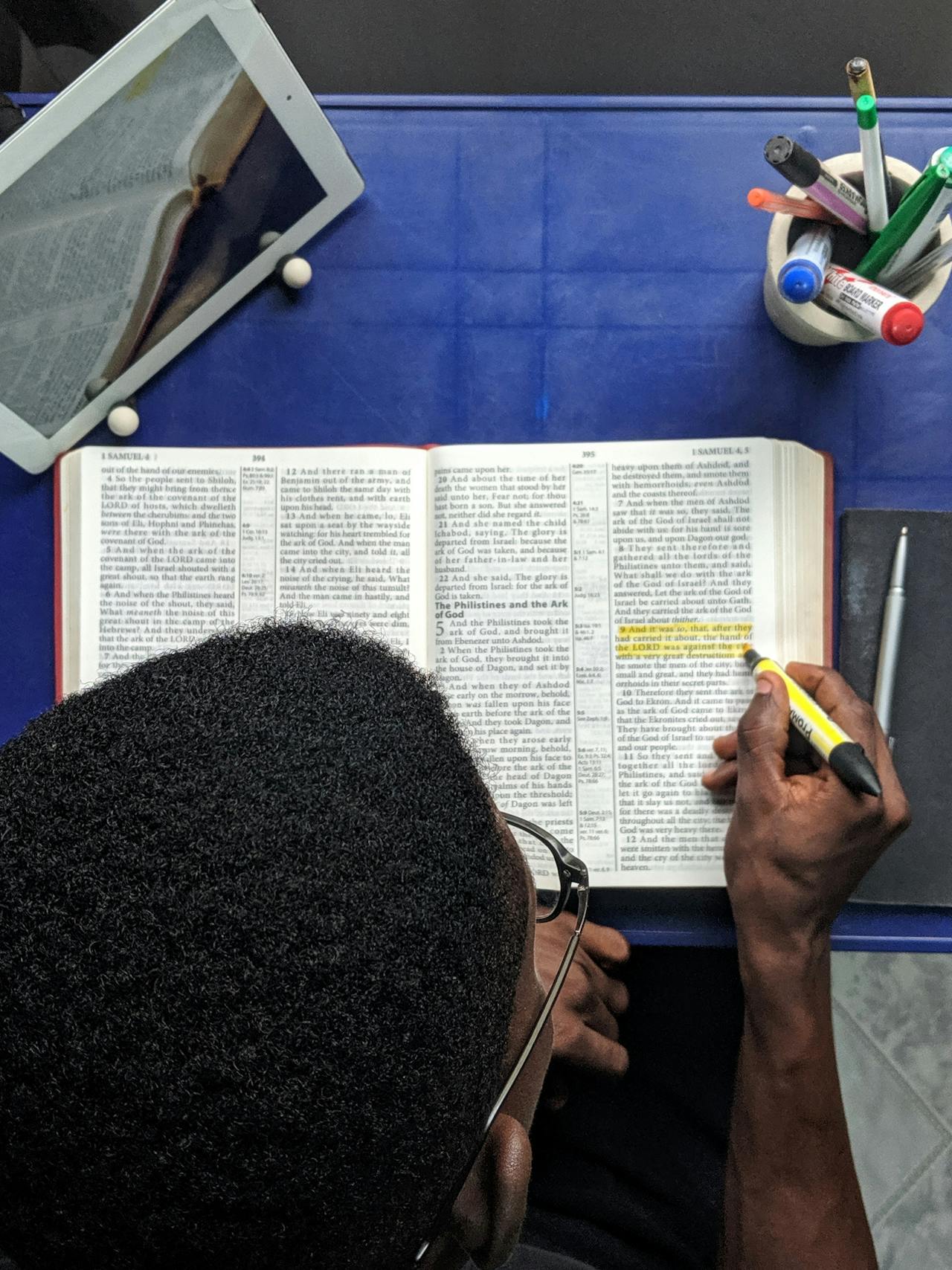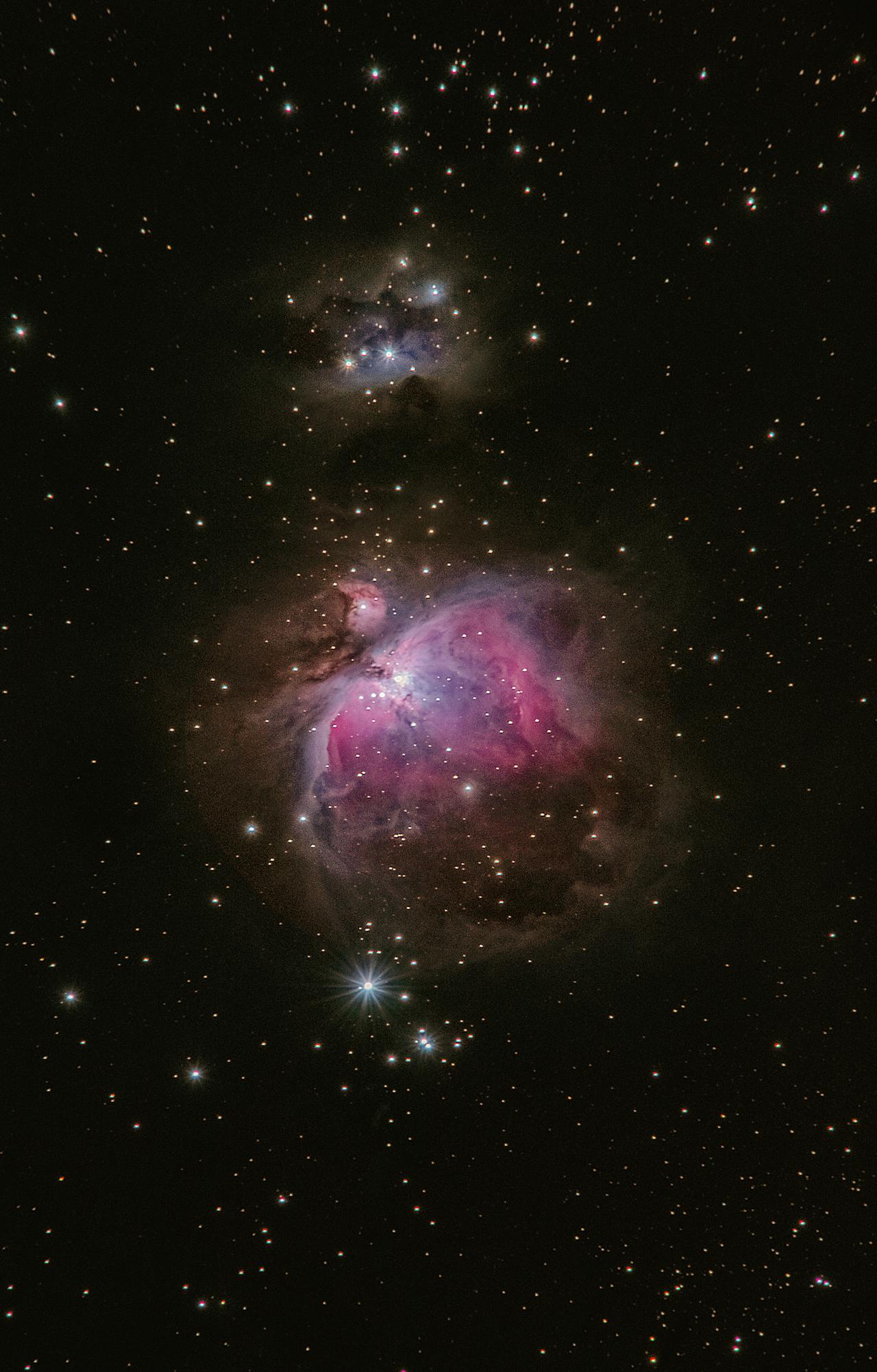Hello, dear friends. In today’s session, we’ll delve into a scripture passage that, despite its familiarity, often remains deeply misunderstood. The challenge with well-known texts is that while many can recite them, few truly comprehend their depth. Our interpretations are frequently colored by personal ideologies, overshadowing the passage’s true message.

Let’s examine Matthew 6:28, which questions, ‘Why worry about clothes?’ Here, the term ‘worry’ extends beyond mere contemplation of attire to broader anxiety about future uncertainties. The scripture advises, ‘Do not worry about tomorrow, for tomorrow will worry about itself. Each day has enough trouble of its own,’ urging us to live in the present and let go of future anxieties.
Proceeding to verse 29, we’re told, ‘Not even Solomon in all his splendor was dressed like one of these.’ This highlights the divine care in creation, suggesting that if God lavishly adorns the natural world, surely He will provide for us, His faithful with little belief. The text challenges us to shift our focus from worldly concerns—’What will we eat? What will we drink? What will we wear?’—reminding us that ‘your heavenly Father knows that you need them all. But seek first the kingdom of God and His righteousness, and all these things will be given to you as well.’
This brings us to the crucial inquiry: What is the kingdom of God? Without an accurate grasp of this concept, our efforts risk being fruitless. Many strive for the kingdom of God without recognizing it, suggesting a widespread lack of understanding about its true nature. The kingdom of God is not about merely existing on earth for a set number of years before passing away; it encompasses far more.
Delving into the Gospel of Matthew, one can’t help but observe the depiction of Jesus as a sovereign. This portrayal is crucial as Matthew establishes Jesus’ genealogy leading back to David, affirming His status as the legitimate monarch. Conversely, the other Gospels illuminate varied facets of Jesus – with Mark presenting Him as a servant, John as the Son of God, and Luke as the Son of Man. These texts do not describe disparate individuals but rather different dimensions of the singular Jesus.
The theme of the king and the kingdom is heavily emphasized in the book of Matthew. Why? Because Matthew is revealing Jesus as the king. The essence of Matthew Chapter 6 is a contrast between different lifestyles – Jesus teaches not to live like certain people, not to give like them, and not to pray like them. For instance, He says, ‘Don’t give so that men can see you give. Give so God can see you give. If you give so men can see you give, then you’ve already received your reward.’

Additionally, it instructs, ‘When you pray, do it in this manner, not that way. Avoid praying in public spaces to be seen by others. If your prayer is performed for the visibility and auditory benefit of others, then well done, you’ve obtained your reward right there. Instead, when you pray, retreat to your room, shut the door, and pray in solitude, where only God can witness you. And God, observing your private prayers, will compensate you publicly.’
Thus, the decision rests with you – opt for displaying your actions to garner human praise, or engage in your devotions quietly, according to God’s preference, and allow God to bring you into the spotlight. This leads us to the conclusion of Matthew Chapter 6, emphasizing the avoidance of materialistic anxieties. It’s noteworthy that it doesn’t explicitly state, ‘Don’t be concerned about securing shelter.’
Numerous individuals perceive the Bible’s guidance as overly basic or naïve. For example, when people interpret, ‘Having food and clothing, with these we shall be content,’ they overlook the absence of shelter in that enumeration. The Bible identifies food, water, and attire as essentials, implying that shelter, by contrast, might be considered more of a comfort. This perspective might appear odd from a Western viewpoint, but a survey of biblical history reveals a significant lapse before the mention of houses. The inaugural mention of someone owning a house in the Bible was Lot, in contrast to Abraham, who dwelled in tents.
I’m not saying we shouldn’t live in houses. What I am saying is that we often consider many luxuries as necessities and judge others who have more luxuries than us, thinking they only care about material things. However, we also have luxuries that others don’t, yet we don’t see ourselves as overly materialistic. This leads us to the teachings in the book of Romans, where it says, ‘Why do you judge your brother? Or why do you look down on your brother? For we will all stand before God’s judgment seat.’
This section emphasizes the importance of prioritizing the kingdom of God and His righteousness, highlighting that doing so will ensure all our material worries are taken care of. The kingdom of God is underscored as immensely powerful, capable of resolving every concern and eliminating every anxiety we might have.
A common misunderstanding is the assumption that the Bible is primarily a text focused on religion.
Indeed, while the Bible encompasses elements of religiosity, its core message transcends mere religious doctrine. To shift your perspective slightly, it’s interesting to note that the first instance of what we might call religion in the Bible is attributed to an unlikely source: Satan, as outlined in Genesis chapter 3.
By religion, I refer to a system crafted by individuals or collectives, proposing that adherence to certain practices can either bring one closer to God or make one more godlike. This is the essence of what constitutes religion in this context.
Now, if we turn our attention to Genesis chapter 2, verses 16 and 17, we encounter a directive from God to man, stating, ‘Of every tree of the garden thou mayest freely eat.’ The terms ‘every’ and ‘freely’ here—are they indicative of scarcity or abundance? Undoubtedly, they suggest a state of generous provision. The phrasing ‘every tree freely eat’ denotes a condition of abundant access. However, God introduces a singular limitation: ‘But of the tree that’s in the midst of the garden, thou shalt not eat. For in the day thou eatest thereof, thou shalt surely die.’ How many trees does this prohibition apply to? Just one. This sets up a stark contrast between broad permission and a singular restriction: abundance versus limitation.
Thus, Adam and Eve were in a state of near-complete liberty, save for one restriction. Isn’t that a remarkable concept? They were free to enjoy everything but one item. Following this, in Genesis chapter 3, the serpent subtly distorts God’s command, asking, ‘Yea, hath God said, Ye shall not eat of every tree of the garden?’ Observe the cunning inclusion of ‘not‘ and the exclusion of ‘freely,’ altering the original message of universal permission to one of universal prohibition.

Eve’s response to the serpent, stating, ‘We may eat of the fruit of the trees of the garden,’ notably leaves out ‘freely’ and ‘every.’ This omission mirrors our contemporary inclination towards political correctness, where we adjust our language to avoid offending, even as others may not extend the same courtesy regarding our own beliefs and expressions.
This tendency is not new but can be traced back through history. Eve further elaborated, ‘But of the fruit of the tree in the midst of the garden, God has said, “You shall not eat it, nor shall you touch it, lest you die.”‘ Interestingly, the directive ‘do not touch it’ was never issued by God, suggesting Eve’s own interpretation aimed at using her willpower to avoid temptation.
The serpent’s rebuttal, ‘Ye shall not surely die,’ introduces the concept of the first religion, proclaiming, ‘For God knows that in the day you eat of it, once you defy God’s command, you will be like gods, knowing good and evil.’ This notion, that by defying God one could achieve divinity or god-like status, forms the crux of the first religion, embodying principles of hedonism or humanism, where humanity aspires to godhood.
Consider the symbolism of the tree of knowledge of good and evil; consuming its fruit signifies a departure from viewing God as the ultimate judge of morality, instead elevating oneself to that role, effectively achieving a state of godliness. The inherent issue with religion, then, is its attempt to supplant God, regardless of the religion’s name.
Moreover, certain ideologies, though not traditionally classified as religions, serve a similar purpose. Environmentalism, for instance, with its emphasis on Earth’s preservation, can function religiously. Similarly, political correctness acts as a modern doctrine, prescribing how we should act to attain a higher moral or ‘god-like’ status. Do you see the connection?
Satan is often credited with founding the first religion, setting a precedent for all subsequent religions where groups dictate actions to achieve godliness. However, it’s crucial to understand that God’s intention behind the Bible was not to establish a religion but to extend His kingdom on Earth. This realization opens up a deeper comprehension of the Bible, a journey I once embarked on myself.
Reflecting on the structure of a monarchy, where everything and everyone is under the sovereignty of the royal family, offers insight into God’s preferred governance model: a kingdom with Himself as the supreme ruler. Breaking down ‘kingdom’ into ‘king’s dominion’ reveals it as the realm over which the king has authority.
Thus, when instructed to ‘seek first the kingdom of God and His righteousness,’ it implies pursuing the domain God reigns over. But what exactly is this kingdom? It’s the dominion God wishes to govern, which includes us and the Earth we inhabit, made from the very dust of the ground. This concept ties back to the fascinating dynamics in the Garden of Eden, where God’s interactions with Adam, the first man, highlight fundamental aspects of life and creation.
God’s initial command to humanity was to be fruitful and multiply, signifying life as a self-sustaining cycle, where fruit, a living entity, carries its seed. In the creation narrative of Genesis, God distinguishes three categories: creation (the non-living elements like sun, moon, and water), creatures (animals and plants), and humans.
The creation and creatures were brought forth by God’s command to the Earth and seas, such as plants, animals, and marine life. However, humans were created distinctively, with God stating, ‘Let us make man in our image.’ Unlike the rest of creation, humans were made in the divine likeness, elevating them beyond mere creatures to beings with creative capacity, reflecting God’s nature as a creator.
No, we’re not creators in the sense of ‘bara‘ (the Hebrew word for create), which signifies the act of creating something from nothing. Yet, God fashioned humanity as a reflection of Himself, capable of crafting something from pre-existing materials. He endowed us with a portion of His creative essence. God’s creative capacity is boundless, whereas ours is limited. This limitation is intentional; He didn’t endow any single individual with the entirety of His creative power, but rather, He imparted a measure of this creativity to each of us.
This divine spark of creativity has been placed within both you and me, intended to generate and develop innovations that enhance our world. So, what exactly constitutes the kingdom of God? What is the realm over which God exercises His reign? Through my studies, I’ve arrived at an interpretation, though I remain open to adjustments should a more scripturally consistent explanation emerge.
The kingdom of God manifests when we align our lives under God’s supreme authority, choosing the term ‘yield’ over ‘surrender.’ We must note, that ‘surrender’ is not a term found in the Bible; it conveys submission to an adversary, whereas ‘yielding’ implies a voluntary act towards someone we trust.
Thus, by yielding my existence to God as the ultimate ruler of my life, He entrusts me with sovereignty over a specific domain. God appoints each of us as rulers—kings and queens—over particular areas of influence. A carpenter has dominion over wood, a plumber over water systems, an electrician over electrical currents, and a teacher over the dissemination of knowledge.
Remarkably, this design eliminates rivalry. God designated me to govern my area of responsibility and you yours, without the possibility of usurping each other’s roles. This arrangement fosters mutual support rather than competition.
Therefore, as I submit my life to God’s kingship, I am called to use my unique area of influence to serve others I encounter. Adopting this principle as the guiding philosophy of your life can lead to profound transformations. In yielding to God’s supreme leadership, He assigns me reign over my domain, which I then leverage to seek out opportunities to benefit others.
Reflecting on Psalm Chapter 8, the declaration, “Oh Lord, our Lord, how majestic is Your name in all the earth,” sets the stage for a profound inquiry: “What is man that You are mindful of him, or the son of man that You care for him?” The psalmist marvels at humanity’s elevated status, placed just a notch below the angels, adorned with “glory and honor,” and entrusted with “dominion over the works of Your hands; You have put all things under his feet.”
This description indeed echoes the stature of a king, doesn’t it? My sense of assurance doesn’t stem from self-confidence or belief in my capabilities. Rather, it’s rooted in the decree of the sovereign King who has endowed me with a domain to govern. He has equipped me with the requisite abilities for this task even before it was assigned to me.
Therefore, I harbor no doubts about its feasibility. I know it will succeed. I’m not navigating the journey of my life with hesitation, pressing both the accelerator and the brake simultaneously.
In surrendering my life to God as the sovereign King and embracing the mission He has ordained for me, I actively seek opportunities to serve those I meet. This mission transcends merely awaiting our time in heaven with Jesus, though such anticipation is not misplaced. Our earthly existence is meant for action, imbued with purpose.
Jesus, whose name Yeshua signifies salvation, did not limit His message to salvation alone during His time on earth. He preached the gospel of the kingdom because the kingdom represents our primary reason for being placed on Earth: to extend the realm of Heaven and instill its values here. However, we’ve often let earthly cultures override this heavenly mandate, leading to a disconnect in our lives. We’ve been following the wrong leadership.
The essence of our existence is for the expansion of God’s kingdom. Salvation’s ultimate goal is to reinstate God’s kingdom among humanity. Don’t delay in embracing this truth. Dive into the Scriptures, for they are replete with insights we might not even realize we’re searching for.
Turning our attention to the Book of Revelation, it’s important to note that it revolves around a singular revelation: that of Yeshua HaMashiach, Jesus Christ. From the onset in Revelation Chapter 1, verse 5, it acknowledges Jesus as “the faithful witness, the firstborn from the dead, and the ruler of the kings of the earth.” Which kings? Those of us committed to prioritizing God’s kingdom and His righteousness. Through His sacrifice, “who loves us and has freed us from our sins by His blood,” He has anointed us as kings and priests to God. This act wasn’t arbitrary but purposeful; to enable us to represent Him in life as He represented us through His death.
This understanding is clear to me. Quoting “But seek ye first the kingdom of God and His righteousness” isn’t a call to passive waiting but an active engagement in God’s work.
I am called to align every aspect of my being with God’s will—my thoughts, vision, speech, hearing, actions, and movements. As a king serving under the supreme King, my role is to serve His people.
Just as Yeshua embodied the role of a servant king, I too am called to adopt this posture. As stated in Philippians Chapter 2, we’re encouraged to adopt the mindset of Christ Jesus, who, embodying the nature of God, did not cling to His status but humbly took on the role of a servant.
Thus, in following Yeshua’s example as a servant king, my aspiration isn’t dominion over others but stewardship of my designated realm, aiming to serve as many as possible. Embracing this calling to yield to God, govern your sphere of influence, and serve others will indeed bring peace into your life. Through serving, we find our true purpose and fulfillment.
It’s remarkable how past generations grasped a concept that often eludes us today. Take, for instance, the story of Joseph and his brothers. After their father’s death, his brothers feared retribution. Yet, Joseph reassured them, “You intended to harm me, but God intended it for good.” He named his second son Manasseh, meaning “God has made me forget all my trouble and all my father’s household.” Though we typically associate Egypt with Joseph’s prosperity, it was, in essence, his place of suffering due to his separation from his family. Nevertheless, God blessed him abundantly in what was his land of affliction.
Joseph recognized, “God sent me ahead of you to preserve for you a remnant on earth and to save your lives by a great deliverance.” This underscores a profound truth: our placement in life serves a purpose beyond our benefit—it’s about impacting others. My purpose is not self-centered.
Reflect on the Queen of Sheba’s words to Solomon, “Because of the Lord’s eternal love for Israel, He has made you king to maintain justice and righteousness.” It highlights that our leadership and stewardship in our respective domains are expressions of God’s love toward those we serve. Shying away from this responsibility means neglecting to manifest God’s love and purpose. Our existence, and the roles within it—whether as friends, spouses, children, or parents—are opportunities to serve.
The Bible’s query, “Why worry about what you will eat, drink, or wear?” essentially directs us to “seek first the kingdom of God and His righteousness.” What if this means dedicating our lives to God’s sovereignty, employing our divine assignments to serve all we encounter? Serving with our talents opens doors and brings us into the presence of greatness. Service initiates a cycle of reciprocity; when we help someone, they’re inclined to help us in return. This is the essence of Jesus’s message to prioritize God’s kingdom and righteousness.
Pursuing God’s kingdom involves more than personal salvation; it’s about ruling over our life’s mission to serve others. However, there’s a common misstep in interpreting scripture through a Westernized lens, detaching it from its Eastern roots and leading to misconceptions. The Bible narrates the story of Abraham and his descendants, and misreading it through Western religious perspectives can distort its message.
God’s intention is for every individual to live as a sovereign entity, yet true sovereignty begins with submission to the King of Kings. It’s astonishing how some resist this by attempting to earn forgiveness through deeds rather than accepting God’s sacrifice as the ultimate atonement for sin.
Consider Abraham’s faith, which God counted as righteousness. This illustrates that it’s not our works but our faith that pleases God, leading to righteous actions. Embracing Jesus’s sacrifice as the complete payment for our sins aligns us with God, marking the start of our submission, not its conclusion.
Salvation is not the end goal but the starting point for fulfilling our earthly duties. God’s first command to humanity was to be fruitful, multiply, and dominate the Earth, exercising dominion through the unique creativity He has instilled in us.
We are called to serve in every encounter, from daily interactions to significant relationships. If everyone lived by the principle of seeking God’s kingdom and righteousness, societal issues would rapidly dissolve.
God’s creation narrative, culminating in the ultimate act of love, sending His Son, sets a pattern for us: to create, connect, and contribute. By living this out, seeking to serve and contribute to others’ lives, we can effect global change.
Thus, “seeking first the kingdom of God and His righteousness” entails a life dedicated to serving through our assigned roles, transforming worldly concerns into divine assignments. I hope this message inspires and encourages you to share, engage, and continue exploring these truths. Remember to engage with this content—like, comment, subscribe—and stay tuned for more. May you be blessed abundantly.







